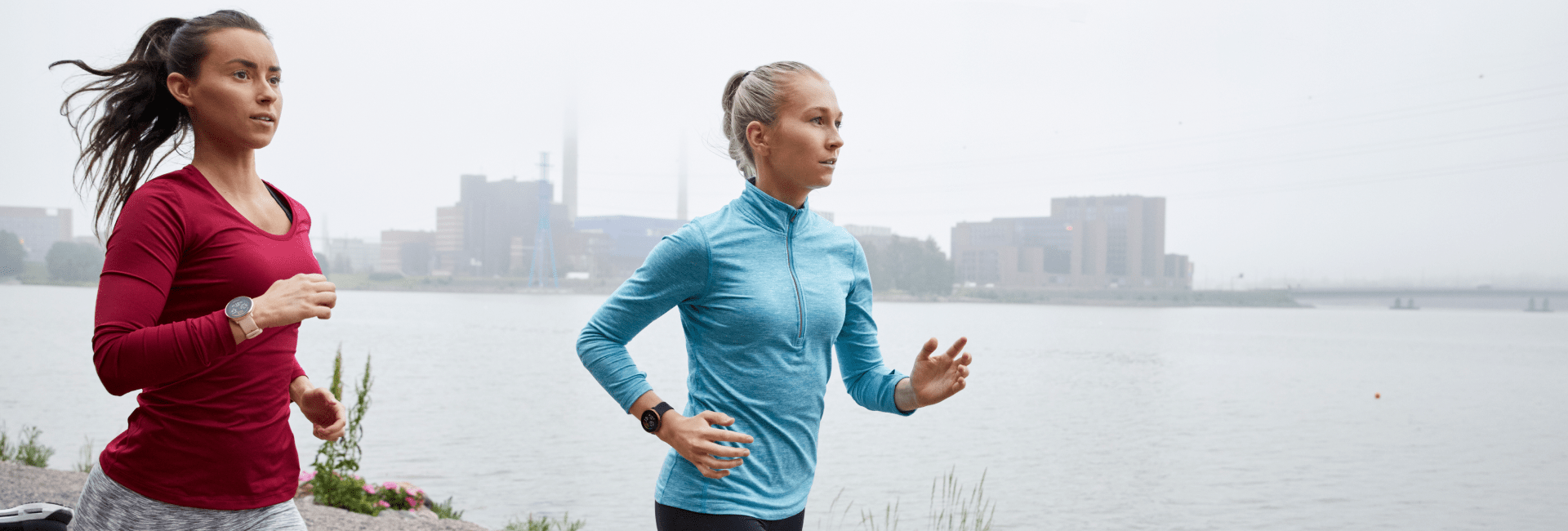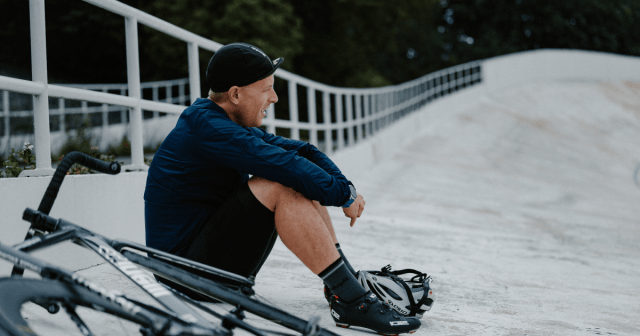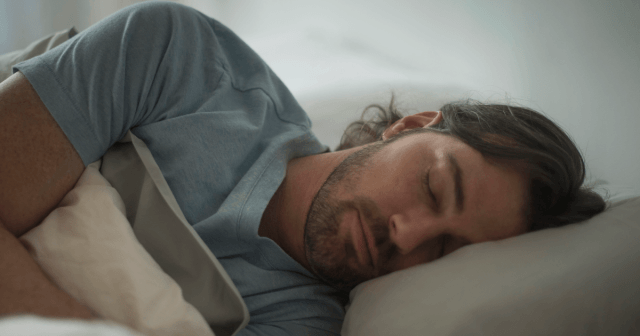Pardon the pun, but this topic is very close to my heart. Long before I was diagnosed with generalized anxiety disorder, I knew when something felt ‘wrong’ for me because I could sense it in my chest. My heart would race, my ‘fight or flight’ response (scarily, it was often ‘fight’) would be activated, and sometimes I would experience days of painful tension in my chest like my heart was being held in a vice-like grip.
It’s no surprise to me that there is a strong link between anxiety and heart rate. People often think that anxiety is all in your head. The spiraling thoughts. Imagining stressful scenarios. Fearing the worst. However, anxiety is in your body too. It’s a physical reaction that suddenly changes a range of bodily functions, including your heart rate.
One of the difficult things about having anxiety is trying not to stress about the impact that it may be having on your physical health, as that will make you more anxious. However, it’s essential to be aware of the long-term effects to understand why you should deal with the underlying cause of your anxiety.
Simply put, anxiety places additional strain on your heart. It raises your heart rate, increases blood pressure, and lowers your HRV. Experiencing these symptoms regularly and intensely for months or years can enormously impact your heart health. Weak heart muscles, coronary disease, and cardiac arrest are considerably more likely in people with an anxiety disorder.
Anxiety places additional strain on your heart. It raises your heart rate, increases blood pressure, and lowers your HRV.
Experiencing these symptoms regularly and intensely for months or years can enormously impact your heart health.
It’s scary stuff and easily something you could worry about. However, use it as the impetus to get the help you need to manage your anxiety. If you have not received a diagnosis, speak to your doctor first. After that, you can incorporate a wide range of tools into your daily life to help your mind and body. From therapy to exercise, medication to meditation, it’s essential to learn how to reduce your anxiety today so you can help your overall health tomorrow.
What is anxiety?
Anxiety is how your body is naturally hardwired to deal with a stressful situation. It’s how you can suddenly focus and pay attention to a potentially dangerous situation. When you snap into this ‘fight or flight’ mode, your sympathetic nervous system (SNS) is activated. That means your heart rate gets faster, increasing oxygen flow to your major muscles. Plus, your breath is shallower, your hearing sharpens, and your pain perception drops. All so that you are focused and ready to respond to danger.
Your anxiety response is critical to your survival, and once upon a time, it was how you knew to suddenly run away from a saber tooth tiger, for example. But these days, you’re more likely to use it to make a split-second decision, such as avoiding a collision. Either way, anxiety is normal, and we all experience it every once in a while.
However, often when people talk about ‘having anxiety,’ they aren’t referring to this passing state but to a specific anxiety disorder. Usually, an anxiety disorder occurs when your body enters into ‘fight or flight’ mode when there isn’t an actual threat in your immediate vicinity, causing you to stay with an elevated heart rate, for example, for an ongoing period. Such a response could occur in everyday situations, such as sitting on a bus or in a meeting.
Having an anxiety disorder can be, at best, an uncomfortable and inconvenient source of stress. At worst, it can cause a mental health crisis, impact your physical health and impede your ability to go about your everyday life. How you experience anxiety varies on what type of anxiety disorder/s you have.
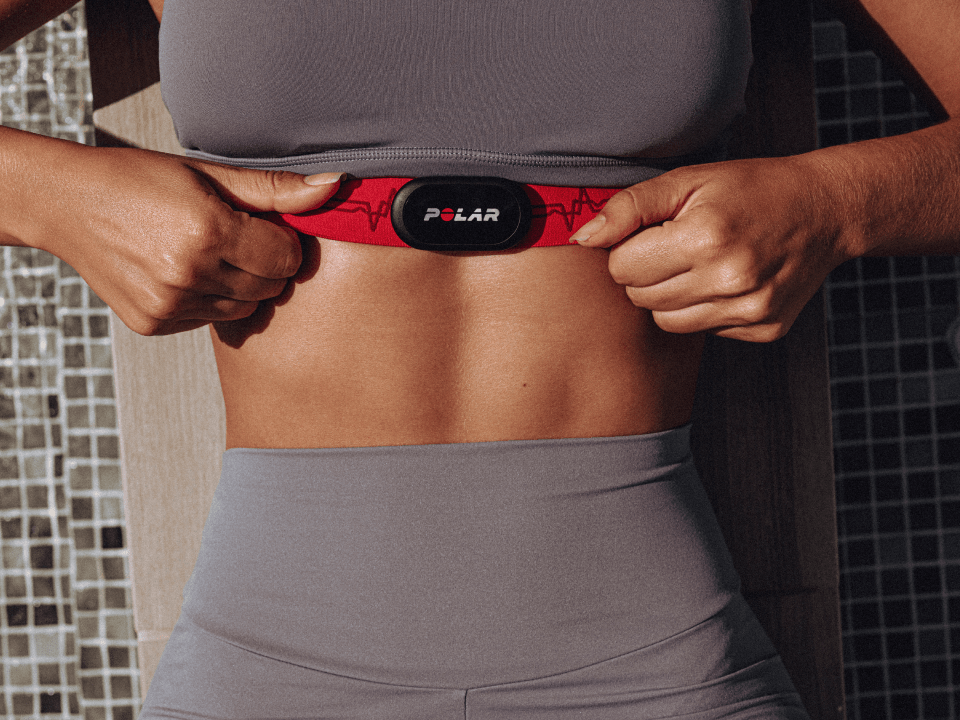
How does anxiety affect heart rate?
Anxiety has a noticeable effect on your body. Activating your SNS will cause various physical changes, including increased heart rate. Many people who experience anxiety often describe their heart as ‘racing,’ feeling ‘fluttery,’ or having ‘palpitations,’ and your anxious mind can cause you to hyperfocus on how your heart is behaving, adding to how tense you’re generally feeling.
So, what exactly happens to your heart rate when you feel like this? Anxiety is a stress response, which means when it surges, it’s because your body has released noradrenaline, your ‘fight or flight’ hormone. It’s a chemical created in your nerve endings to help you quickly become alert and focused. As a result, noradrenaline (also called norepinephrine) temporarily raises your blood pressure and speeds up your heart rate, sometimes up to 100 bpm, even though you’re inactive.
Noradrenaline is an essential hormone for helping us deal with potentially dangerous situations. However, with an anxiety disorder, your heart rate surges in an everyday setting and sometimes remains high for extended periods. It’s a strange and uncomfortable experience to feel your heart rate racing like you’re being chased by a bear, even though you may be sitting quietly on the subway, listening to a podcast.
Beta-blockers are commonly prescribed to people with anxiety disorders, temporarily slowing your heart rate. While it doesn’t treat the underlying cause of the condition, it does reduce the symptoms, providing much-needed relief from your pounding heart and associated ailments, such as shaking, twitching, and sweating. Calming your heart rate can make an enormous difference to someone struggling with anxiety, helping them feel ‘normal’ and think more clearly again.

Are low HRV and anxiety linked?
Yes, your anxiety and heart rate variability (HRV) are intrinsically linked because they both relate to your SNS. While HRV is simply the measure of the variation in length between your heartbeats, it is, in fact, an incredible tool for biofeedback.
Low HRV can indicate that you’re struggling with anxiety, especially if you have a chronic anxiety disorder. It means your body isn’t switching easily between SNS (fight or flight) and parasympathetic nervous system/PSNS (rest and digest) but staying in stressful SNS for much longer than necessary. That means your body dedicates more resources to being on high alert instead of tending to other core functions like healing and building immunity.
I use Polar Nightly Recharge™ to measure my HRV while I sleep, so I can check how well my body relaxes overnight every morning. It’s a great indication of how tense I am physically, and I can then use that reading to reflect on my current mental health. If I start to see a downward turn towards a consistently low HRV, I know to pay more attention to my feelings.
As someone with an anxiety disorder, I also like having one HRV daily reading to give me a generalized insight. If I could constantly assess this, I would probably anxiously check it throughout the day to see how my HRV is going, which may end up making me more anxious.
However, some people track their HRV throughout the day to train their bodies to deal with anxiety. For example, if their HRV suddenly drops at a certain point, they will stop and do a short breathing exercise (like Polar Serene™ pictured below) to help activate their PSNS again. It also means they can begin to understand how certain things (such as drinking a lot of coffee) cause their HRV to drop and potentially adapt their lifestyle.
Of course, low HRV can occur overnight for various reasons, such as drinking alcohol or having a large meal in the evening. It can also signify that you are becoming ill or have been overtraining. So, it’s all about learning to understand your body and how it responds to specific situations, so in time, you come to know what low HRV means for you.
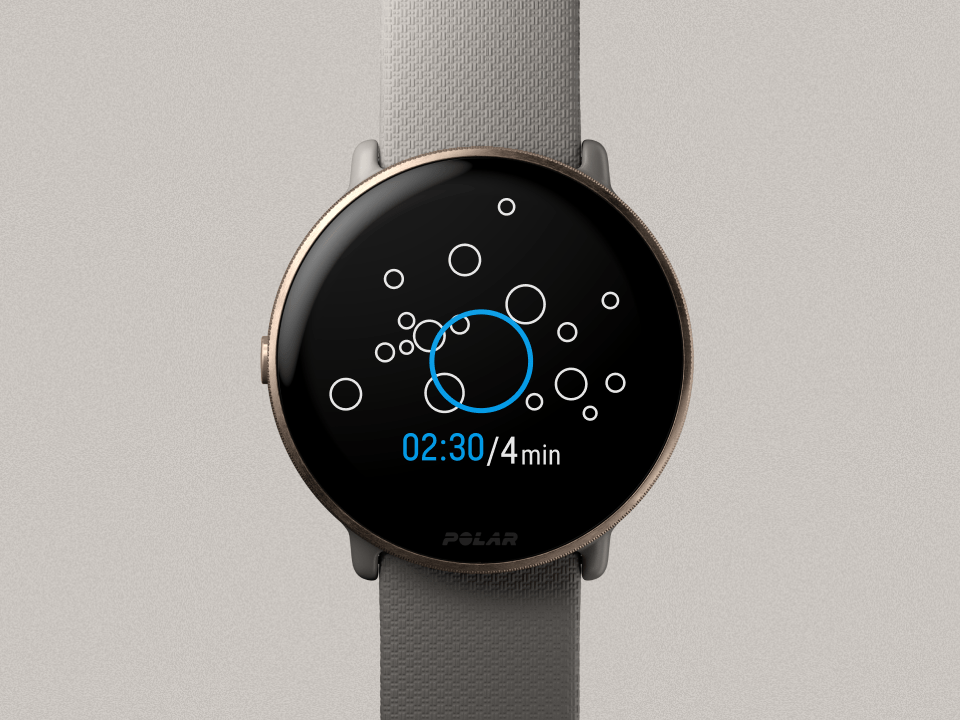
Anxiety and exercise
There are many ways that exercise can contribute towards improving your mental health. Working out gives you an endorphin boost, lifting your mood, washing away stressful chemicals in your blood, and helping you feel much more chilled out and happy after you’re done. You can practically sweat out the tension in your body and clear your mind.
Some form of regular exercise is vital for anyone struggling with anxiety. As John J. Ratey, MD, an associate clinical professor of psychiatry at Harvard Medical School, says, “[exercise] may be the single best nonmedical solution we have for preventing and treating anxiety.” However, anxiety can sometimes make getting outside and exercising feel like an impossible feat. As a 2015 study indicated, people with anxiety tend to be largely sedentary and rarely physically active.
[Exercise] may be the single best nonmedical solution we have for preventing and treating anxiety.John J. Ratey, MD. Associate clinical professor of psychiatry, Harvard Medical School.
The reason for anxious people avoiding exercise can be for several different reasons. Sometimes they can feel too anxious to leave the house and go for a run. For others, they struggle with both anxiety and depression, which saps them of their motivation. However, another key reason is that the stress that exercise places on the body can sometimes feel similar to anxiety or panic attacks.
Think about it: your heart rate is raised, you’re short of breath and beginning to sweat. These are all signs that we usually associate with being physically active. However, if you have a history of panic attacks, you may start to worry this is a sign of something different and end up triggering your anxiety while you exercise.
After all, anxiety is both a mental and physical experience, and your body remembers your past experiences, in a sense keeping data on what felt good and what didn’t. So, if it starts to see your responses are similar to a panic attack, for example, it will alert your brain to be anxious. Not helpful when you’re in the middle of a HIIT class or competing in a triathlon.
Know that when this happens, it’s ok to stop and breathe. Let your heart rate ease, your body relax, and your mind become calm again. It may also be a good idea to rethink the intensity of your workouts for a while. Try something gentler for a time and slowly build back up to allow your body to differentiate between the stress of training and your anxiety response.
Walking and anxiety
Personally, I’m a huge fan of walking as a tool for managing my anxiety. I usually do at least 30 minutes daily, often boosting it up to around 60-90 minutes when I have the time. I keep the pace pretty gentle and ensure I walk in a green space for some of that time, as it’s been shown to boost your mental health. However, sometimes I mix it up, putting on a playlist to lift my pace and heart rate into Zone 2.
So, what about walking makes it useful for people like me who struggle with anxiety? A 2015 review of studies on exercise as a treatment for anxiety suggests an interesting reason. The area of your brain that controls your anxious reaction, your fight or flight response, is your amygdala. It’s a pretty primitive area of your brain, and can only focus on one thing at a time. So, when you walk, it can’t function properly because that would require it to multi-task, meaning you can limit your mind’s ability to be anxious through walking.
Of course, walking isn’t a ‘cure’ for anxiety. However, making it a regular part of your day is a great way to get regular gentle exercise and clear your mind. It is an essential way for me to maintain my mental balance, alongside other tools like quality sleep, eating well, and my daily meditation and journaling practice.
Anxiety and heart rate speak volumes about each other
I used to think I would spend the rest of my life having chest pains, feeling panicked in work meetings, and unable to focus as my heart pounded about the simplest things.
Thankfully, over the past couple of years, I’ve learned that there is a range of ways I can activate my PSNS and calm my heart rate when I’m anxious. Deep breathing, meditation, going for a walk, or having a massage are all tools that I use to calm myself. Even your lips have parasympathetic fibers running through them, so simply running your fingers over them can help relax your nervous system.
It’s also important to be aware that ongoing anxiety can impact your heart health during mid and later life. Plus, the role that exercise can play in boosting your ability to deal with an anxiety disorder. So, pay attention to your heart, body, and mind today to enjoy
If you liked this post, don’t forget to share so that others can find it, too.
Or give it a thumbs up!
I like this article
Please note that the information provided in the Polar Blog articles cannot replace individual advice from health professionals. Please consult your physician before starting a new fitness program.

